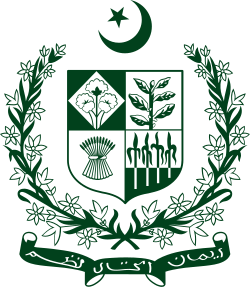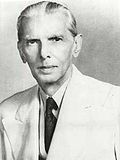| Jinnah family | |
|---|---|
 | |
| Country | British India [1] Pakistan (from 1947) |
| Place of origin | Paneli, Kathiawar, Bombay Presidency, British India |
| Founder | Jinnahbhai Poonja |
| Final head | Muhammad Ali Jinnah |
| Members | |
| Connected families | |
| Traditions | Nizari Isma'ili Islam Sunni Islam [a] |
| Heirlooms | Displayed at Quaid-e-Azam House |
| Estates |
|
| ||
|---|---|---|
Governor-General of Pakistan Contents
Political views Properties | ||
| Gallery: Picture, Sound, Video | ||
Jinnah family of Muhammad Ali Jinnah had long been prominent in British Indian, and later Pakistani, politics. They played a pivotal role in the Pakistan Movement.
Jinnah, often referred to in Pakistan as the Quaid-e-Azam , served as the country’s first Governor-General after the partition of India. His younger sister, Fatima Jinnah, was also a key figure in the Pakistan movement. Many public institutions, including universities and hospitals, have been named in honor of Jinnah and Fatima, and their birth and death anniversaries are recognized as public holidays in Pakistan. [3] [4]
The history of the Jinnah family is somewhat debated among different sources. [5] Originally from a Khoja background, the family relocated to Karachi from Kathiawar, Bombay Presidency in 1875. [6] Jinnah's paternal grandfather hailed from Paneli Moti village in the Gondal state (now part of Gujarat, India). [7] Jinnah was the eldest of seven children born to Jinnahbhai Poonja, a merchant, and his wife, Mithibai. The family was part of the Khoja caste, a group of Hindus who had converted to Islam centuries earlier and were followers of the Aga Khan. [8] Although raised in a Khoja Muslim family, Jinnah later identified as a Sunni Muslim, a shift confirmed by testimonies from relatives and associates later in his life. [2]










